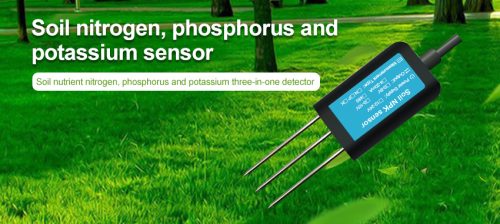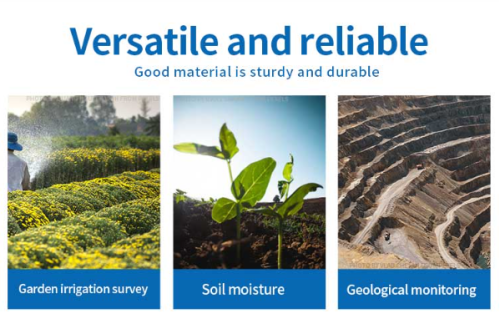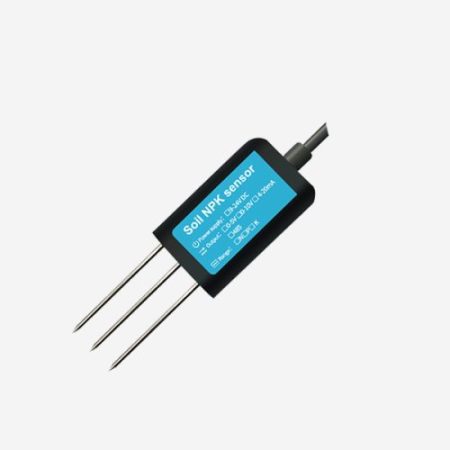The NPK sensor becomes a valuable tool for farmers and agronomists as it allows real-time monitoring of soil nutrient levels. In this article, we will explore the importance of NPK sensors, their applications in agriculture, and how they contribute to enhancing agricultural productivity.

What is an NPK Sensor?
An soil NPK sensor is a device that measures and monitors the levels of key nutrients in the soil, namely nitrogen (N), phosphorus (P), and potassium (K). These nutrients are essential for plant growth and play a crucial role in various physiological processes. The sensor utilizes advanced technology to provide accurate and reliable data on nutrient concentrations in the soil. This information helps farmers make informed decisions regarding fertilizer application, irrigation management, and crop health.
Applications of NPK Sensors in Agriculture

NPK sensors have a wide range of applications in agriculture, contributing to improved crop management and increased productivity. One of the primary applications is precision nutrient management. By providing real-time data on nutrient levels in the soil, farmers can optimize fertilizer application and ensure that crops receive the right amount of nutrients at the right time. This helps prevent over or under-fertilization, which can lead to nutrient imbalances, reduced crop quality, and environmental pollution.
Another important application of NPK sensors is in irrigation management. Soil moisture plays a significant role in nutrient availability and uptake by plants. NPK sensors can measure soil moisture levels and nutrient content simultaneously, allowing farmers to schedule irrigation more efficiently and avoid waterlogging or drought stress. By optimizing irrigation practices, farmers can ensure that crops receive adequate moisture and nutrients, leading to healthier plants and increased yields.
The Impact of NPK Sensors on Agricultural Productivity
NPK sensors have a profound impact on agricultural productivity. By providing real-time data on soil nutrient levels, farmers can apply fertilizers precisely and avoid wastage. This leads to improved nutrient use efficiency, reduced input costs, and increased crop yields. Moreover, by preventing nutrient imbalances, NPK sensors contribute to healthier plants with higher resistance to pests and diseases.

Furthermore, NPK sensors promote sustainable agriculture practices. By optimizing nutrient management, farmers can minimize nutrient losses to the environment, such as leaching or runoff, reducing the risk of water pollution. Precise nutrient application also reduces the need for synthetic fertilizers, which can have negative impacts on soil health and biodiversity. As a result, NPK sensors support environmentally friendly farming practices that are essential for long-term agricultural sustainability.
Conclusion
NPK sensors are valuable tools for enhancing agricultural productivity and promoting sustainable farming practices. By providing real-time data on soil nutrient levels, these sensors enable farmers to optimize fertilizer application and irrigation management, leading to improved nutrient use efficiency and increased crop yields. They also help prevent nutrient imbalances and reduce environmental pollution associated with excessive fertilizer application. With the continued advancement of technology, we can expect NPK sensors to become even more accurate, accessible, and integrated into precision agriculture systems. This will further revolutionize nutrient management practices and contribute to global food security while minimizing the environmental footprint of agriculture.
